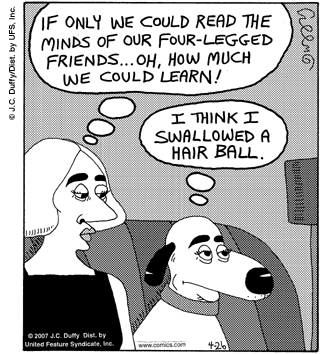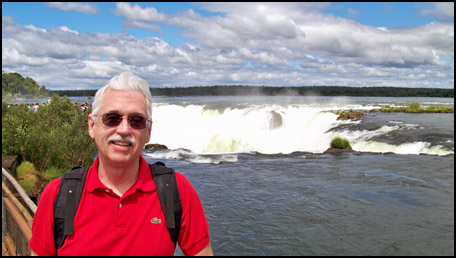Phil. 125
Philosophy of Science
Phil. 125Fall, 2009
TuTh 1:30 pm
Prof. Dowden

Catalog description: A study of the philosophical problems that arise in the sciences: how claims are justified, the limits and styles of explanation, identifying pseudoscience, values in science, unity and diversity of the sciences, and science's impact on our world view. 3 units.
Grades: Your grade will be determined from the following assignments: Two homework sets (each 19%), a final exam (29%), a research essay seven to eight pages long (28%) and class participation (5%).
- Homework 1 due Sept. 24
- Homework 2 due Oct. 22
- Essay due Nov. 19
- Final exam: Dec. 17, 12:45-2:45
Class
attendance is not required, but some parts of the
assignments will be on material introduced only during class
meetings. All the assignments will be composed only of
essay questions. They are due at the beginning of the due
date's class meeting, not during or after class.
Textbooks: Worldviews by Richard DeWitt, Blackwell Publishing, 2004. In addition, there are some webpages and class handouts to read.

Prerequisites: There are no prerequisite courses, although it is recommended that you have completed your G.E. critical thinking requirement (area A3) plus have had either (I) two college-level science courses, or (ii) one college science course and one philosophy course. Very little previous knowledge of any specific science is presupposed in our course, so there is little danger that you will be blinded by technical material. This course can be used to satisfy your B5 requirement in the G.E. program.
Goals of the course: By the end of the course you will be able to analyze and evaluate basic concepts and practices within science and about science. You will have an overall view of the sciences and how they work. Also, you will know what the central problems about science that are of interest to the philosophers, and you will know some of the major solutions to those philosophical problems. In short, you will understand science more deeply and be better prepared to explore on your own these and other philosophical and scientific questions. At the same time you will gain a better understanding of the scope and limits of human knowledge. Finally, because of all the writing projects in our course, the hope is that you will become a better writer, especially of essays that do not commit the fallacy of confirmation bias.
Professor:
My office is in Mendocino Hall, room 3022, and my weekly
office hours will be announced in class on the first day.
Feel free to stop by at any of those times, or to call. If
those hours are inconvenient for you, then I can arrange an
appointment for an alternative time. You may send me e-mail
at dowden@csus.edu
or call my office at 278-7384 or the Philosophy Department
Office at 278-6424. The fastest way to contact me is by
email. My personal web page is at http://www.csus.edu/indiv/d/dowdenb/index.htm

Prof. Dowden
Late work, and make-up assignments: I realize that during your college career you occasionally may be unable to complete an assignment on time. If this happens in our course, contact me as soon as you are able. If you provide me with a good reason for missing an assignment (illness, accident, etc.), then I'll use your grade on the final exam as your missing grade. There will be no make-up tests nor make-up homework. I do accept late assignments with a grade penalty of one-third of a letter grade per 24-hour period beginning at the class time the assignment is due. Examples: If you turn in the assignment a few hours after it is due, then your A becomes an A-. Instead, if you turn in the same assignment 30 hours late, then your A becomes a B+. Weekends count. If you turn in your assignment late by email, which is recommended, then there is no need to follow up with a paper copy. No late work will be accepted after the answer sheet has been handed out (normally this will be at the next class meeting) nor after the answers are discussed in class, even if you weren't in class that day.

Add-Drop: To add the course, if the course is full, then send me an email about signing up
on the waiting list. To drop the course during the
first two weeks, do it online. No paperwork is
required. After the first two weeks, it is harder to drop,
and a departmental form is required, the "Petition to
Add/Drop After Deadline." As with any university course,
make sure you are dropped officially (by the university computer system, or by the
instructor, or by the Philosophy Department secretary); don't simply walk away
into the ozone or else you will get a "WU" grade for the
course, which is counted as an "F" in computing your GPA
(grade point average).
Laptops and cell phones: Turn off your cell phones. Laptops may be used during class for note taking but not for reading email or other non-class activities. No photographing or recording during class
is allowed without permission of the instructor.
Testing
protocol: For
in-class tests, you may use your books and notes but not
your computer or phone.
Disabilities:
If you have a documented disability and require
accommodation or assistance with assignments, tests,
attendance, note taking, etc., please see me early in the
semester so that appropriate arrangements can be made to
ensure your full participation in class. Also, you are
encouraged to contact the Services for Students with
Disabilities (Lassen Hall) for additional information
regarding services that might be available to you.
Honesty:
See the University's policy
on honesty and cheating.
A student tutorial on how not to plagiarize is available online
from our library.
Food: Please do not eat and drink (except water) during class. You're welcome to leave class anytime if the need arises.
Emergencies:
If we have a long-term emergency, say, an influenza health emergency, then our
course will continue by email and the Internet. You'll be
contacted at your Saclink email address.

TOPICS
AND READING ASSIGNMENTS
Weeks 1 & 2: Science's impact on our
worldview
- Aristotle, teleology, and the cosmos as an organism.
- Leeuwenhoek, Pasteur, Koch and microorganisms.
- Ibn Al-Nafis, Harvey, Vesalius, and the body as machine.
- European Enlightenment.
- Darwin and divine design.
- Turing, Chomsky and the cognitive science revolution.
- Copernicus' overthrow of Ptolemy.
- Galileo on math as the language of nature.
- Torricelli: nature doesn't abhor a vacuum.
- Newton, atomism, mechanism, and determinism.
- Calculus and the microstructure of space.
- Non-Euclidean geometry and curved space.
- Minkowski’s space-time.
- Einstein’s time travel to the future.
- Einstein's E = mc2.
- Hubble discovers galaxies.
- Big bang and multiverse.
- Quantum
mechanics, indeterminism, and instantaneous action at a
distance.
Reading: "What Is the Aim of Science?" "What is the Philosophy of Science?" Chapter 1 in DeWitt. The Powers of Ten (click on "Manual" and notice the shape of our environment looked at from one million light years away).
Week 3. Science and its critics
- Is science objective?
- Scientism: Is science the uniquely privileged route to knowledge?
- Science, religion, and creationism
- Is science
value free?
Reading: Science Wars (and the Strong Program in Sociology). "Conflicts Between Science and Religion" by Sickler. CSUS Library Video #2090: "God, Darwin, and Dinosaurs," shown in class. [You may skip the following: "Values in Science: An Introduction" by Allchin].
Week 4: What is science, and how do we demarcate it from pseudoscience?
- Is there a scientific method?
- Distinguishing science from
pseudo-science
Reading: "Preface to Treatise on Light" by Huygens. "The Scientific Outlook" by Russell. "What is Science?" by Dowden. "Science and Pseudo-Science" by Hansson.
Weeks 5 & 6: Scientific reasoning
- What are facts?
- Deduction and Induction
- Discovery vs. confirmation
- Hume's problem of induction
- Inference to the best explanation
- Hypothetico-Deductive Method
- Popper's critique
- Designing a good test
- Ad hoc revisions of hypotheses
- Paradoxes of Confirmation
Reading: Chapters 2 to 7 in DeWitt. "Whewell's Scientific Method."
Week 7 & 8: Explanation in science
- Does science explain or only describe?
- Hempel's covering law model of explanation
- Explanation and causality
- Explanation
and reduction
Reading: "Studies in the Logic of Explanation" by Hempel. "Theories of Explanation" by Mayes. "Reductionism" by Ney.
Week 9: Realism and anti-realism
- Arguments for scientific anti-realism
- The pessimistic meta-induction
- Underdetermination
- The observable/unobservable distinction
- Theory-ladenness of observation
- Putnam's "no
miracles" argument
Reading: Chapter 8 in DeWitt. "Cognitive Relativism" by Westacott.
Weeks 10 & 11: Scientific change and scientific revolution
- Changing from Aristotle's worldview to Newton's
- Kuhn and the structure of scientific revolutions
- Paradigms
- Periods of normal science and revolution
- Incommensurability
- The rationality of science
- Kuhn's legacy: attention to the history and social context of science, the strong program in sociology, cultural relativism
Weeks 12-14. Selected philosophical problems in science
- Could science one day explain why the universe exists instead of doesn't exist, i.e., why there is something instead of nothing?
- Could consciousness be explained scientifically?
- Who solved Zeno's paradoxes?
- Leibniz vs. Newton on absolute space and time
- Issues raised by relativity and quantum mechanics
- Do numbers exist, and how do we detect them (Benacerraf's epistemological problem)?
Reading: "Why Is There Something Rather Than Nothing?" by E. Sober. "Mind, Man, and Machine: A Dialog" by P.Sagal, and "Consciousness" by R. Gennaro. "Zeno's Paradoxes" by B. Dowden. "Is the Relational Theory Preferable to the Absolute Theory?" by Dowden. View the first half-hour (only) of the Lecture on Relativity by R. Muller at U.C. Berkeley. Chapters 22-29 in DeWitt. Excerpts from Non-Euclidean Geometry and Curved Space, from The Princeton Companion to Mathematics. "The Philosophy of Mathematics," sections 1 and 3.4.
Week 15. Review

PROF.
DOWDEN /
PHILOSOPHY
DEPT.
COLLEGE
OF ARTS AND LETTERS
/ CSUS
The
web address of this file is
http://www.csus.edu/indiv/d/dowdenb/125/f09/125-s09.htm
updated:
11/20/09